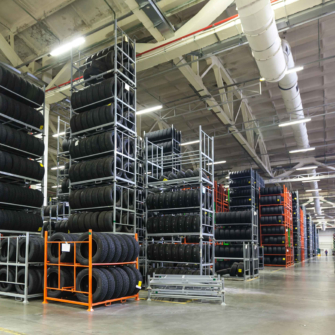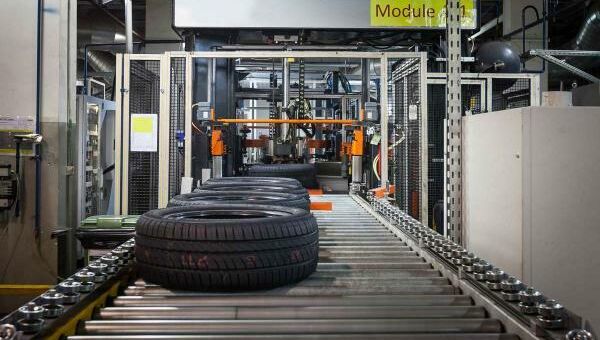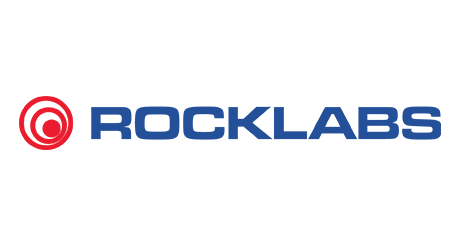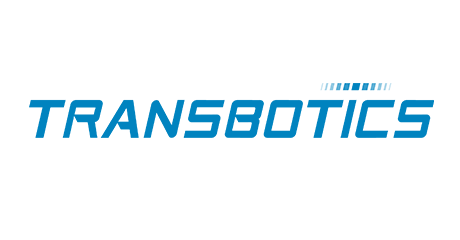Select your region / language
Fully Automated Tire Manufacturing

Large tire manufacturers are improving their bottom line through automation and it’s multitude of benefits
With the market predicting to grow 3-4% by 2022, tire manufacturers need to optimize their production line to more advanced processes to meet consumers’ demand without delay. Research and investments into these automated processes are transforming the entire industry, taking it by storm.
The transition from manual systems to automation in the tire manufacturing and distribution industry is crucial for improving the fulfillment process’s overall quality, lowering production costs, and eliminating human error and product damage. The switch to automation can be seamless in both new and pre-existing warehouses when working with a reliable automation provider.
With current technology, robotic solution providers can transform a facility’s material flow into an autonomous solution without a bottleneck effect. With just one portion of a production line automated, a facility can save time, increase productivity and reduce the amount of space taken up by the workcell. The ability to automate an entire assembly line is not out of reach with today’s technological advancements, with gantry robots, stationary robots, automated conveyors, palletizers, software/data integration, and automated guided vehicles all solutions that optimize material flow.
How Automation Transforms Work Flow
Automation providers can offer advanced solutions for workflows like that seen in the global tire industry, promising results and success. Companies taking advantage of these solutions are showcasing the success of automation. An automated solution being successfully integrated would follow a similar process to the below:
- The first step is to automate the storage and transportation of raw materials used in building the tires. Using automatic storage and retrieval systems (ASRS) the materials are stored and retrieved using robots, conveyors, and automated guided vehicles. Automating storage and retrieval systems provide accurate data logging, real-time location, and product counts.
- Automated technology transports materials to be mixed and prepared as a compounded material for component preparation.
- Compound materials are then transported again autonomously to the component preparation equipment.
- After the equipment prepares the material, it moves down a conveyor and goes through the green tire building process.
- Material handling robots then unload from the tire building machines onto a conveyor feed.
- After moving down the conveyor, gantries or ASRS, then retrieve the green tires.
- Automated guided vehicles then deliver the tire to the curing press.
- After the curing process is complete, a computer uses vision technology to perform quality checks on the final product to ensure only high-quality tires leave the facility.
- The final product is then sorted and palletized using a palletizing workcell.
- The final step for the production flow is order fulfillment and shipping automation. The customer’s orders are selected using a gantry system and then packed onto a trailer for distribution.
A completely automated tire handling system gives manufacturers the advantage of higher quality products, more significant quantity outputs to meet demand and an optimized workflow that better utilizes space and workers.
Beating the Competition
Tire retailers that automate are gaining an advantage over competitors still using manual processes. Some benefits that come with automating include:
- Tractable process control at every stage of production.
- Better inventory management with updated tracking on product availability through ASRS.
- Greenfield facilities can lower capital investment with compact design layouts and smaller workcell footprints.
- Brownfield facilities utilize space more efficiently and optimize workflow.
- Lean manufacturing optimizes material flow and diminishes product waste.
- Better quality and higher product volume to satisfy customer demand with ease by achieving the right work-in-process (WIP).
Automation for All
Tire manufacturers cannot meet product demand from the market unless procedures are updated and automated. Companies like Michelin, Kama Tyres, Linglong Tire, and Cooper Tire have already made the jump into automation and report an expected increase in product volume following the upgrades. Being new to automation or not having much experience with it can make it appear challenging, stressful, expensive, and intimidating to start. Fortunately, automation solution providers can help every step of the way and make the process uncomplicated. Tire sales and customer demands are predicted to increase, meaning tire manufactures will be forced into finding solutions to maintain success in the market. Automation should be integrated into tire facilities before they are unable to keep up with demand. The right choice for each facility depends on the environment, long-term logistics, budget, and applications. Automation allows a multitude of different companies to take advantage of, and gain, a head start in keeping up with production. Innovation and advancements in automation make it possible to provide solutions in more than just one way, giving facilities the ability to function autonomously and improving their bottom line.




